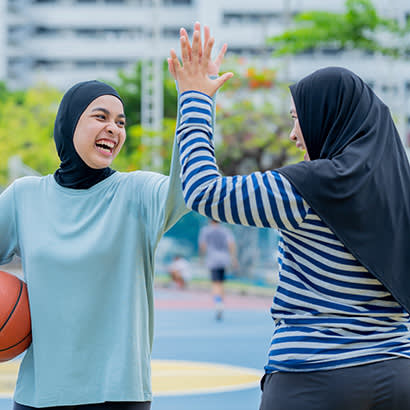
For an enhanced digital experience, read this story in the ezine.
In 1988, I started my career with the Chicago Park District as a summer day camp counselor working in the same neighborhood park where I participated in summer camp and sport leagues during my adolescence. Little did I know, I was beginning a career that would span 34 years and counting.
In 2007, I joined Chicago State University as a faculty member. As a former practitioner, my goal is to prepare students with competencies that enhance their preparedness and marketability. Our profession has shifted from providing primarily sports-oriented programming, thus requiring an employee with competencies in areas that help broaden agency program offerings and services.
Health and Wellness
A 2021 NRPA survey finds, “Nearly all (93 percent) U.S. adults say that activities offered by park and recreation professionals and their agencies are beneficial to their mental health.”
NRPA introduced a new Health Equity Framework Model during the World Health Organization’s World Health Day in 2021. Program/Facility Coordinator for City of Bloomington (Indiana) Parks and Recreation Erik Pearson states, “Park and recreation agencies, as essential parts of their communities, are uniquely positioned to address health equity issues….” The need for health and wellness programs will continue to broaden and require more specialized staff. Developing competencies in this area will become increasingly important for providers.
Cultural Competencies
Understanding and managing cultural differences in the workplace and community is important. In “Working With Diverse Youth: Guidelines for Achieving Youth Cultural Competency in Recreation Services,” Corliss Outley, Ph.D., and Peter A. Witt, Ph.D., note the growing interest by recreation management on how to become more culturally astute by participating in trainings.
NRPA Vice President of Education and Chief Equity Officer Autumn Saxton-Ross, Ph.D., states, “To harness the full power of our parks for good, to be inclusive and welcoming, we must intentionally learn, and then work against, the ways in which they have been and can still be used to exclude.” Cultural competency is not only about developing tolerance and an understanding of race and ethnicity, but also being inclusive of marginalized groups. Cultivating diversity, equity and inclusion competencies has a significant impact on one’s ability to manage staff and effectively provide community programs and services.
An Environmental Focus
Environmental education programming by park and recreation agencies has been on the rise since 2011, according to Recreation Management. Sarah Bodor, director of policy and affiliate relations at the North American Association for Environmental Education, reviewed the Youth Outdoor Policy Playbook, a bipartisan policy initiative comprised of lawmakers across the United States. “The framework is organized around three areas of opportunity to strengthen youth engagement in outdoor education and recreation — outdoor learning environments, outdoor access and connectivity and systemic environmental literacy and education,” says Bodor.
With agencies’ efforts to “go green” and the charge of “reconnecting youth to nature,” staff will likely demonstrate mindfulness regarding sustainability issues and environmental education, with an eye toward garnering additional professional development in this area.
Cultivating Collaboration
Due to changing demographics, providers are seeking agencies to collaborate with to diversify programs and services, share in grant applications, and establish partnerships. John L. Crompton, Ph.D., university distinguished professor of recreation, park, and tourism sciences at Texas A&M University, takes a close look at collaboration and sharing of amenities and resources for delivering services in “More Public-Private Partnership Models.” Examples include the use of private facilities to host recreation programs during business downtimes. Other opportunities include working together to restore natural resources and expanding existing public facilities. The ability to collaborate and secure supplemental resources is a critical skill for today’s recreation provider.
Youth Development
Quietly, parks have become social service providers offering nontraditional programs that reinforce what youth should be learning in school and at home. “Delivering social services is raising the profile of public parks and recreation, changing our image from fun and games to a provider of socially relevant, essential tools for our community’s well-being,” states J. Wynns in a 2008 issue of Parks & Recreation. Educational programs, workforce exploration, civic engagement and multicultural activities provide youth essential building blocks for social and academic development and contribute to their overall growth. Recreation providers need to demonstrate awareness around the developmental needs of participants, especially school-age children and youth considered at risk.
Professional Development
Developing specific competencies for job efficiency and effectiveness is accomplished through avenues, such as licensure, certification, education, mentoring by seasoned staff, observation and hands-on experience. As agencies continue to evolve to meet constituents’ needs, identification of preferred competencies by faculty and practitioners is important. Faculty and practitioners working together will ensure the availability of employees who are prepared, possess program- and service-related competencies, and are sensitized in the areas to which the profession is trending.
Dr. June N. Price-Shingles is Professor of Recreation Administration at Chicago State University and COAPRT Visitor.

